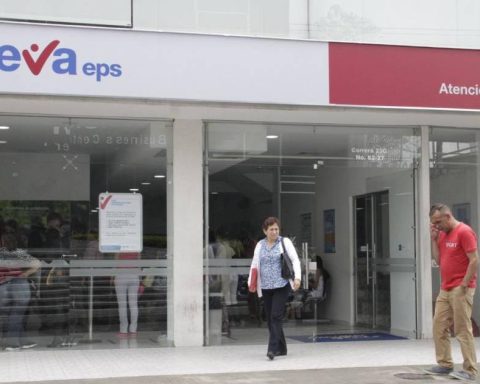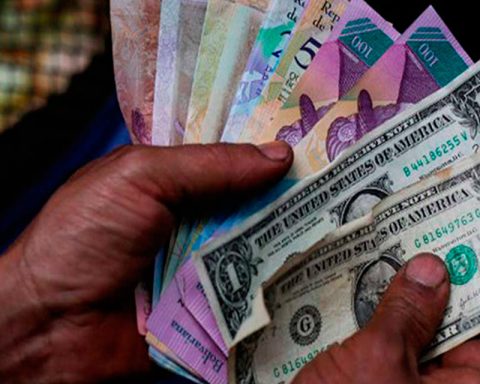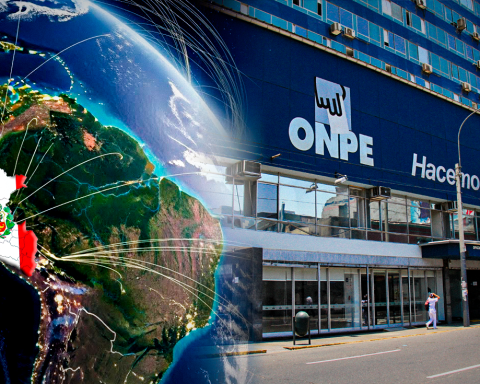This week, the Latam Fintech Market is taking place in Barranquilla, one of the most important events in the financial technology industry in Latin America, which brings together major brands such as Nubank, Binance, Bold and Nequi, among others, and which on this occasion addresses the challenges and the future of the regional market on issues such as innovation and financial inclusion.
Portafolio spoke with Gabriel Santos, president of Colombia Fintech, who reviewed the sector in the country, talked about the conclusions of the event and the challenges that remain in place to reach more people with digital banking and non-conventional financial services, to address scourges such as informal credit.
More news: The progress that has been made to end the truckers’ strike, according to the Ministry of Finance
How much progress has been made in the fintech world?
The fintech ecosystem continues to show signs of leadership in the region. Colombia is the third largest ecosystem in Latin America, because very interesting things happen here and we have a lot of talent to develop this type of innovation. We have access to international capital and we also have a user base that is ready or has some kind of experience to consume this type of digital financial services.
These things together have made Colombia reach a privileged position in the region and have a very strong, very robust ecosystem, but at the same time it faces great challenges to continue not only consolidating itself, but to reach a second wave of creation and continue to serve consumers of digital financial services in Colombia in a good way.
Gabriel Santos, president of Colombia Fintech.
Courtesy.
Have you been hit by the slowdown?
Yes, it has been affected. I think it is unavoidable because the slowdown in economic activity is ultimately reflected in the difficulty for citizens to access credit portfolios to generate consumption. However, on the other hand, things are happening at an international level, such as interesting developments from the point of view of new technologies or new systems that have helped millions of people enter the digital economy in other latitudes.
In the latter, we see a path that could be taken so that the fintech ecosystem can be the countercyclical solution to the country’s macroeconomic challenges. Of course, there is a slowdown in certain segments of what we do as fintech, but in others we see that there is still hope for the future, which means that there are still investments in both new developments and talent in the country.
You may be interested in: Why would the pension reform be likely to fail? Andi responds
Could a countercyclical effect be generated?
Let’s start with the fact that in Colombia only 36% of people have access to credit and that means that thanks to the usury rate we have limited the ceiling on how people can access credit, especially for the most vulnerable people. There is room here for this effect to be generated to counteract the slowdown.
If we see that the Colombian economy has an informality that has always been above 50% or 55%, it means that we have millions of people who are invisible when it comes to accessing these digital services and who are left, let’s say, with a very superficial layer of deposits only.

Fintech
iStock
Are we attractive to investors?
If we manage to be innovative from a regulatory perspective, which is the big push we need right now, we could attract capital in certain segments that want to invest in Colombia, but need regulatory certainty, such as in the cryptoasset ecosystem, where due to uncertainty in other latitudes there are tens of billions of dollars ready to be invested, but they do not arrive.
We are at a point where, it must be said, we are not so attractive for foreign investment, but also with these new developments in financial infrastructure, we can start by making the invisible visible through modern payment systems, to liberalize data and increase demand and inclusion in the market.
More information: Bogota has less than a week’s supply of gasoline due to the truckers’ strike
How to promote inclusion?
This is where a term known as the trilogy for financial inclusion comes in. This consists of the free flow of money, the free flow of data and the reconsideration of rates for accessing credit. Countries such as Brazil or India managed to develop immediate and interoperable payment systems that included millions of people in the digital economy by reducing friction between entities and that led to great progress.
So, if we reduce the friction of moving money, we include millions of people in the digital economy, as Brazil did, but we also bet on a free flow of data and make the open finance policy mandatory, we could grow and stop fighting old problems like the drip-and-drip problem.
How is the Latam Fintech Market doing?
We’re off to a good start, on the right foot. We have the most important experts with global reach and we brought together the most important companies from all over Latin America to discuss what the challenges are, how we can improve the adoptability of this type of services, how we can talk better with regulators.

Economic recession
PHOTO: iStock
We are talking about approximately 1,600 people from all over the continent, who for two days will be at the epicenter of the financial sector in Latin America. Delegations are coming from Argentina, Mexico, Chile, Brazil, to name a few, all to talk and debate about how we move forward in the challenges we have already mentioned.
Big names on the agenda?
We already had David Vélez, the father of FinTech projects, the founder of the largest neobank in the world (Nubank) that already has more than 105 million clients throughout Latin America; we talked with him about what we need to have a legacy for the Colombian industry as well.
We are going to be talking about interoperable payments, which is very important, but with experts not only in Colombia, but also from other companies at the Latin level that are doing it. things are going well. Let’s talk about cybersecurity and the use of artificial intelligence in financial institutions.

















